Curing California
How to Save the State Without Hardly Trying

It seems the only thing standing between the highest office in the state and a power-hungry billionaire is an illegal housekeeper. Given California’s time-honored tradition of “don’t ask, don’t tell” where the hired help is concerned, there’s something deliciously perfect about this. But given the unimaginable dysfunction gripping the state, grimy amusing sideshows about personal hypocrisy are utterly beside the point.
To date, Republican gubernatorial candidate Meg Whitman has spent $120 million of her own money to convince voters that, despite her total lack of governmental experience, she has the executive chops as former eBay CEO to right California’s sinking ship. But now that her former house-cleaner has accused Whitman of hiring her even though she was known to be an illegal immigrant, Whitman will be lucky to keep her own campaign afloat. Just ask Michael Huffington, another famous self-financing billionaire (formerly of Montecito) whose 1994 campaign for U.S. Senate — not to mention his entire political career — was derailed for hiring an illegal nanny.
Whitman’s predicament might be more amusing if the Democrats had enlisted someone other than Jerry Brown to run. It was during Brown’s first tenure as governor 40 years ago that California became fundamentally ungovernable. That’s when thousands of elderly homeowners sought relief from the skyrocketing property taxes then chasing them from their homes. But Brown couldn’t hear them, so anti-tax ideologues seized the moment to pass tax-cutting Proposition 13 in 1978.
In the short term, Prop. 13 delivered exactly what it promised: Property tax increases were strictly limited. But in the long run, Prop. 13 hamstrung the government’s ability to fund basic services. Today, despite having one of the most vibrant economies on the planet, California totes a $19-billion budget deficit and almost always fails to pass a budget anywhere near the deadline. (Yeah, we heard they’re gonna do it this week three months late, but we’re not holding our breath.) Left holding the empty bags are school districts, city councils, and county boards that rely on state money to stay solvent. These jurisdictions must, by law, pass budgets before July 1, even when the state is many months late. That means local governments are passing budgets without even knowing how much they’ll get from the state. It’s crazy-making.
No wonder public confidence in Sacramento has never been lower, with recent polls showing a mere 10 percent approval rating. Of course, Californians themselves haven’t been much help. We’ve passed hundreds of initiatives over the decades, from throw-the-bums-out ideas like term limits to occasionally worthy measures like Proposition 98, which still funds our schools. But usually, these props fail to deliver, succeeding only in binding the hands of decision makers and tightening the grip of special interests. We’re certainly accomplices in our own undoing.
Amazingly, all is not grim. There are reasons for hope, if not outright optimism, thanks to several initiatives on this November’s ballot, which should arrive in the mail for absentee voters this week. If passed — or defeated, depending on the measure — these can go a long way toward curing what ails California, at least structurally. None repeal Prop. 13 — which is now so sacrosanct that it may as well be the 11th Commandment — but a handful offer crucial, if modest, steps out of mindlessly partisan gridlock. Likewise, another three are nightmares waiting to happen if passed.
The following is an idiot’s guide to saving the state. It doesn’t cost a dime. All you have to do is vote.
Make Passing Budgets Easier
PROP. 25: VOTE YES
PROP. 26: VOTE NO

Proposition 25 will do more to end business-as-cruel-and-unusual in Sacramento than perhaps any statewide ballot measure ever. If passed, only a simple majority vote will be needed to pass a budget rather than the two-thirds now required, a mandate shared only by Arkansas and Rhode Island. Also, Prop. 25 will stop paying legislators should they fail to pass a budget by the June 15 deadline. There are even checks to ensure that the majority Democrats don’t spend nonstop: Tax increases will still require two-thirds majority, for instance. If Prop. 25 passes, the sky will not fall, but the fog just might lift.
Proposition 26, meanwhile, is perfect for those who despise government so much that they live off the grid. But for those of us who care about the mundane necessities that government provides — from road repairs to library hours — Prop. 26 should be avoided at all costs. It would extend the same two-thirds requirements governing tax hikes and budget bills to all “fees,” those added bills for housing, traffic, parks, and schools often imposed on developers. No wonder developers — trying to tap the current wave of anti-government enthusiasm — are pushing Prop. 26. That’s not a reason, however, for anyone else to support them.
Stop Stealing from Local Governments
PROP. 22: VOTE YES

When your meth-head uncle asks for $50, do you give him the money, knowing you’ll never see it again? Or do you refuse, knowing he’ll mug some innocent bystander to get it? Proposition 22 — which would block the state from taking tax dollars earmarked for local governments — poses the same moral dilemma. By protecting city governments from further raids, will the state instead cannibalize funding for schools and firefighters? Or if cities are further victimized, will their money be well spent? At a certain point, you just have to say no, and that’s what Prop. 22 does.
During the recession of the early 1990s, Sacramento began impounding funds that would otherwise have gone to local governments, costing the City of Santa Barbara, for instance, $5 million a year. This recession, the state got even more aggressive about raiding our cookie jars. In 2004, voters passed Proposition 1A to stop the practice, but it didn’t work — last year, the state took $2 billion from redevelopment agencies, including $8.2 million of Santa Barbara’s over two years. Prop. 22 keeps the state’s hands off RDA monies. Sure, redevelopment agencies are fun to bash — many are con jobs using public tax dollars to lure developers into revitalizing blighted areas — but they’re often integral players in civic life, such as here, where we have affordable housing projects, arts organizations, parking garages, and even Paseo Nuevo as evidence. We harbor no illusion that by saying no, the state legislature will magically extricate itself from terminal gridlock. But enough is enough.
Redraw the Political Map
PROP. 20: VOTE YES
PROP. 27: VOTE NO
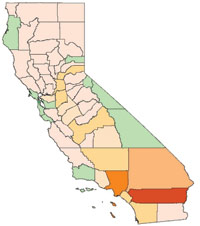
Bad blood between Democrats and Republicans in Sacramento might rival the animosity between the Aryan Brotherhood and Mexican Mafia. It hasn’t always been this way. Much of the problem lies with term limits — which block elected officials from cultivating meaningful relationships — but party bosses also conspired to redraw district boundaries after every census to protect incumbents. It’s worked so well that, in the past 10 years, only two seats have changed party. Today, voters’ only real choices are in the primaries, which tend to favor candidates with hardcore partisan followings. In 2008, voters stripped party bosses of that power, instead creating a 14-person citizens’ committee to redraw the district lines for state offices. Though the committee has yet to do anything, we’re confident the results will be an improvement.
Proposition 20 gives the committee more powers, including the redrawing of congressional districts. The most compelling evidence on behalf of Prop. 20 is our own Congressmember Lois Capps’s district: A Democrat-stocked landscape known as the “ribbon of shame,” there’s no more exaggerated example of political gerrymandering anywhere. We believe some issues of concern to Santa Barbara in Washington, D.C., are far more regional in scope.
Little wonder, then, that Capps — along with nearly every congressional Democrat, who stand to lose up to five seats with Prop. 20 — donated $10,000 to Proposition 27, which would kill the committee outright. While we often agree with Capps, on this matter we strongly disagree.
Legalize Marijuana
PROP. 19: VOTE YES

We would have preferred a better bill to legalize marijuana — critics are calling Proposition 19 a legislative Molotov cocktail — but warts and all, this is a quantum improvement over the absurd status quo. Millions of people smoke marijuana recreationally, just as millions imbibe alcohol, and many do so without apparent detriment to their lives. For some, pot does pose a serious problem, but the criminal justice system is the wrong cure.
Allowing marijuana consumption in private by adults only, Prop. 19 will legalize possession of one ounce as well as growing the plant within a 25-square-foot plot. The administrative nightmare, say critics, is that it gives cities and counties the responsibility to pass laws regulating the sale and taxation of marijuana. Those difficulties, however, pale in comparison to disruption and violence needlessly inflicted every year with the arrest of nearly 78,000 people on various pot-related charges.
Like the myriad cures listed by proponents of medical marijuana, Prop. 19 supporters believe legalization will heal the state’s budget deficit, cut gang violence, and, in time, actually reduce pot use altogether. We’re not entirely convinced, but when former Mexican president Vicente Fox said American drug policies are responsible for 30,000 Mexican murders over the past decade, we realized reform is necessary. We’re also not certain that it will bring in the buckets of promised cash or keep thousands out of jail, but if the past 40 years have taught us anything, it’s that we can no longer afford our destructive drug policies. With the passage of Prop. 19, California might help spark similar changes in other states. It’s a necessary first step.
Pay for State Parks
PROP. 21: VOTE YES

By their very definition, “Band-Aid” solutions seem inferior, but sometimes a Band-Aid is all you have. Proposition 21 will generate $500 million a year to fund the state’s cash-strapped parks — where deferred maintenance is estimated at $1 billion — by charging an additional $18 for vehicle registration. It’s a good deal, giving vehicle owners who pay the fee free entry into the state’s 278 parks, which usually cost about $10 to enter anyway. It may be ballot-box budgeting, but considering that the governor routinely threatens to close as many as 200 parks due to fiscal woes, the alternatives would be much worse.
Fight Global Warming
PROP. 23: VOTE NO

Of all the initiatives, Proposition 23 is by far the scariest. It would repeal AB 32, California’s landmark global warming law of 2006, which requires that the state reduce greenhouse gases down to 1990 levels by the year 2020. We’re not saying that repealing AB 32 will melt Greenland and cause the ocean to swell up Milpas Street to La Super-Rica, but given the overwhelming scientific consensus about climate change, it would be a really stupid thing to do. Bankrolled generously by libertarian ideologues and rogue oil companies, Prop. 23 would put AB 32 on ice until unemployment drops to below 5.5 percent for four consecutive quarters — in other words, indefinitely. The state’s next big economic surge will likely be fueled by the development of green fuel and technology, and AB 32 has been crucial in harnessing the capital required for this task. Still don’t buy climate change? Doesn’t matter — the national security advantages of weaning ourselves from Middle East oil should have been the obvious lesson of 9/11. Keep AB 32 by voting no on 23.
Close Tax Loopholes
PROP. 24: VOTE YES
Two years ago, as part of the institutionalized extortion that is Sacramento’s two-thirds-majority-mandated budget process, Republican legislators insisted on business tax breaks worth $1.3 billion. The state could not afford them then, and it can’t afford them now. Now the California Teachers Association is asking voters to set aside that deal, arguing that out-of-state corporations benefit unfairly. Although Proposition 24 is a classic case of abusing the initiative process to second guess politically sensitive budget negotiations, which we’d normally oppose, we don’t feel honor-bound in respecting negotiations where there is such a lack of good faith involved. On top of that, Prop. 24’s savings could offset any losses inflicted upon public education should Prop. 22 pass.
FOOTNOTE: DISREGARD PROP. 18: Governor Arnold Schwarzenegger had dreams of solving the state’s chronic water problems with this massive public works project. Recognizing it had no chance, he walked away from it, but not in time to yank it from the ballot.
More Endorsements
Lois Capps for 23rd Congressional District
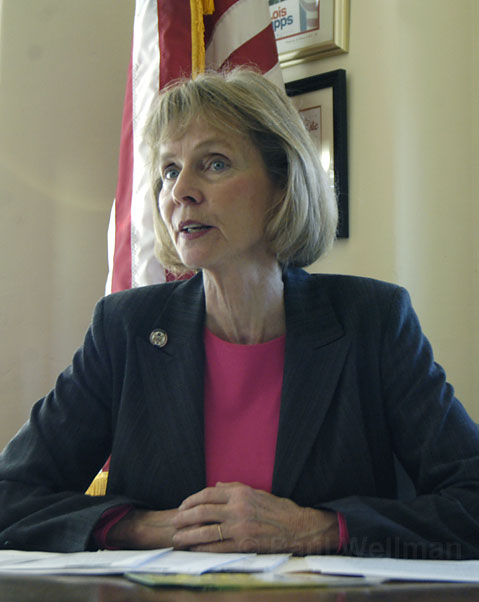
Electing members of congress is a bit like buying a life insurance policy; only over time do they pay off. Lois Capps, a solidly liberal Democrat, has represented Santa Barbara in Congress since Bill Clinton was president. That gives her seniority, which, in the nation’s capitol, still counts for a lot, especially when Capps’s party controls the White House and, at least for the time being, Congress. Capps has been voted the “nicest” member of Congress three times in a row by her peers, an achievement that might otherwise be cause for alarm. But Capps has consistently matched her quiet congeniality with hard work, solid constituent service, and a progressive voting record that Santa Barbara residents have come to take for granted. Capps was one of the few members of Congress to vote against the war authorization act that enabled President George W. Bush to invade Iraq under what’s since been exposed as a mantle of lies and contortions. Since then, she’s played the role of loyal skeptic about Obama’s war in Afghanistan, though we would prefer more skepticism and less loyalty. On immigration, Capps has always been more alive to the human dimension of the issue, and as such has supported the DREAM Act, which offers a path to citizenship for illegal immigrants brought to this country as young children and who have since excelled. A strong supporter of health care reform, Capps courageously inserted herself into the political muck when it appeared the politics of abortion funding might derail the historic health insurance legislation. And when Capps brings home the bacon, usually it comes with a tint of green, with the $2.4 million she just secured for a Carpinteria new wave-surge-energy technology or the $87 million she snagged so that tiny Los Osos can finally settle its sewage problems. We were disappointed to learn that Capps donated $10,000 to state Proposition 27, which would return to party bosses the power to redraw political districts and destroy the special citizens’ commission established to reform that much abused process. Aside from this, Capps has a stellar record. Accordingly, she would do herself and her constituents a big favor by debating her two opponents. Contrary to what her political advisors say, debate remains very much part of the democratic process.
Jerry Brown for Governor
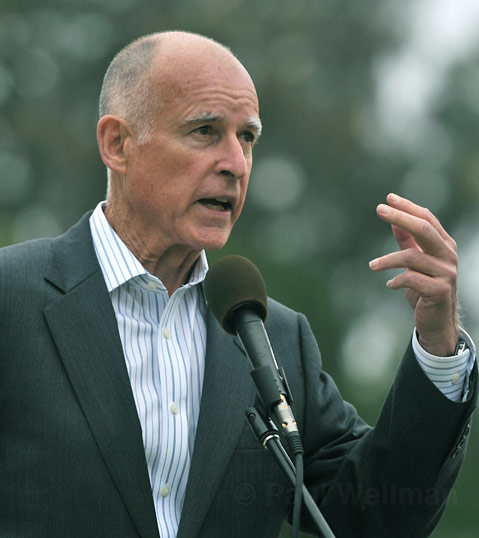
Now is not the time for California voters to indulge in political amateur hour for billionaires. Maybe Meg Whitman, the Republican standard-bearer for governor, can afford to spend more than $120 million of her own money to “buy” a shot at the state’s top office, but California, in its current crisis, can ill afford Whitman. She proudly brings to the table a stunning lack of government experience. So utterly indifferent to the world of politics, Whitman couldn’t even bother to vote. We remain mystified how Whitman’s résumé prepares her for the daunting challenges ahead. By contrast, Democratic warhorse Jerry Brown, now reincarnating himself for the umpteenth time, served as governor during the 1970s and as mayor of Oakland in the 1990s and now serves as the state’s Attorney General. Brown, we assume, will know where many of the bodies are buried. He certainly knows how things get done. Smart, crusty, and outspoken, Brown has the experience, acumen, and relatively advanced age we’re hoping will endow him with the spirit of urgency and independence needed to enact meaningful reform. Given that Democrats so totally dominate both houses, we’re convinced that a Republican governor — no matter how sincere or talented — would be totally ineffective. Look what happened to Arnold Schwarzenegger, unrivaled when it comes to marquee star-power. And Meg Whitman is no Arnold Schwarzenegger. Sadly, as it turned out for the people of California, neither was Arnold Schwarzenegger. For the state’s sake, we’re hoping that maybe Jerry Brown will just be Jerry Brown.
Tim Allison for 24th Congressional District
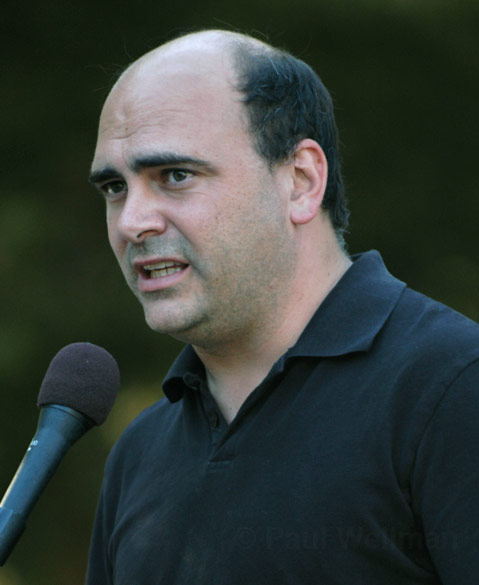
Geographically, all but the coastal region of Santa Barbara County (as well as Ventura County) is represented by Elton Gallegly, a conservative Republican whose indifference to constituent service and accountability is the stuff of political legend. Yet he holds a hammerlock on the district, thanks to gerrymandering that made his seat as solidly Republican as Capps’s is Democratic. Every two years, the Democratic Party fields a sacrificial candidate to oppose Gallegly with all the predictable results. Democrat Tim Allison poses a serious, credible alternative, as opposed to many of the candidates to run against Gallegly in the past. Allison first came to Santa Barbara as a political field organizer in the late 1980s to get Walter Capps — Lois Capps’s late husband — elected to Congress. Allison, who now sells real estate to make ends meet, has been a consistent player in local Democratic circles, infusing the machine with level-headed liberalism and operational efficiency.
Barbara Boxer for Senate

Let’s face it, Barbara Boxer — at times platitudinous, self-righteous, and self-impressed — can grate. But the fact is she’s consistently been right on issues like environmental protection, jobs, and U.S. foreign policy. Without question, California has been well served by having Boxer in the Senate, and in this race, the choice could not be more stark. Her opponent, former Hewlett-Packard CEO Carly Fiorina, is singularly insensitive to the economic pain millions of Americans are now suffering. While at Hewlett-Packard, Fiorina outsourced more than 30,000 American jobs. When Fiorina lost her own — after a power struggle with her board — she availed herself of the platinum parachute afforded only to those in the executive class. Not only would Fiorina oppose a woman’s right to choose, but she’s the only mainstream candidate to support Proposition 23, the ballot initiative that would repeal California’s pioneering anti-global warming law.
Das Williams for 35th Assembly District
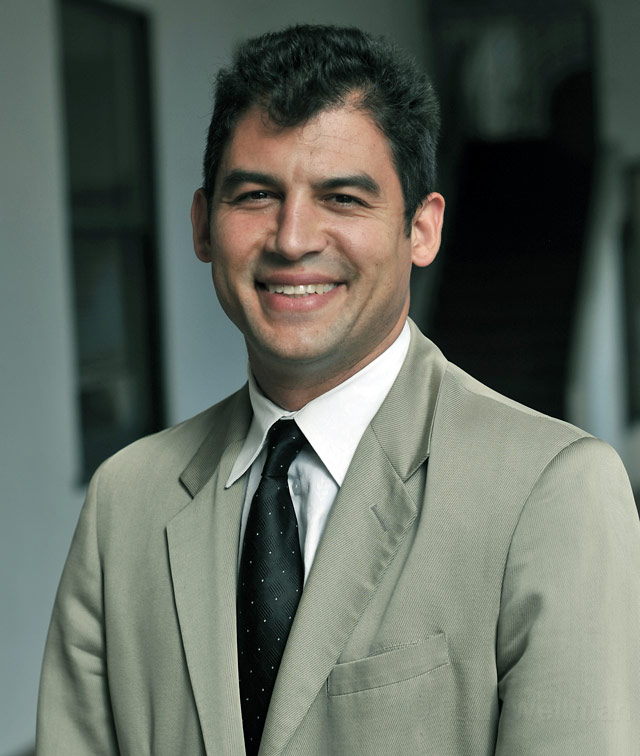
Few Santa Barbara politicians come as prepared, equipped, and temperamentally suited to serve in Sacramento as Das Williams, the politically restless progressive now holding down the left end of the Santa Barbara City Council. Williams is both pragmatist and ideologue, meaning he can grandstand with the best of them but also get things done. With local roots running deep, Williams will remain accessible once ensconced in the weird Twilight Zone of Sacramento. Constituent calls will be returned; their issues, addressed. The same cannot be said for the recent occupant of that seat. During his six years on the City Council, Williams has matured into a force to be reckoned with. When it came to installing solar panels on city buildings, Williams was not afraid to mix it up with reluctant city administrators. He made his case, he persisted, and he prevailed. Without Williams, there would be no Living Wage ordinance, in hindsight probably more symbolic in its accomplishments than tangible. As an advocate of alternative transportation, Williams pushed City Hall to increase its support for MTD, and pushed MTD to make its schedules more enticing to would-be riders. Williams lead the charge to increase Redevelopment Agency funding for affordable housing. In Santa Barbara’s inevitable development wars, Williams has supported greater downtown densities in order to promote more affordable options. But more than anyone else in the so-called “smart growth” camp, Williams has reached out to the other side — traditional slow-growthers worried about losing what makes Santa Barbara special. While those efforts did not bear fruit, we were impressed he made them. As a lawmaker, Williams has demonstrated a clear understanding of all the movable parts that make up a political deal. If Williams remains true to his ideals — as opposed to his ambitions — we believe he has the potential to become an exceptional legislator.



